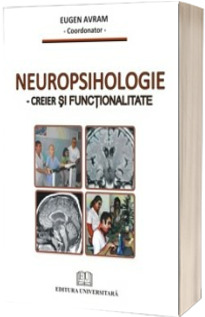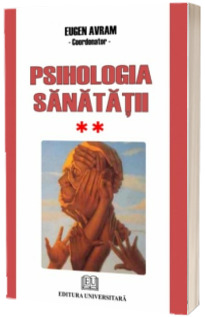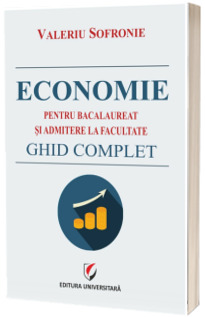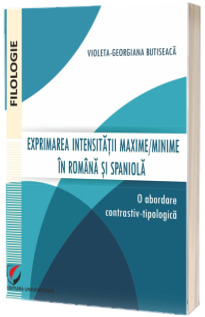Descriere - Increderea organizationala. Trust: The bedrock of individual and organizational excellence.
" In anii `50-`60 se descopera semnificatia increderii in relatiile interpersonale din cadrul societatii.....Increderea a fost abordata ca aspect al relatiilor in si intre organizatii. Cercetarile si aplicatiile s-au decantat la mai multe niveluri: nivelul intraorganizational - increderea in organizatii si nivelul inter-organizational - increderea intre organizatii. Increderea organizationala a fost pusa in relatie cu mai toate fenomenele psihoorganizationale, i s-au stabilit o serie de dimensiuni, s-a incercat elucidarea mecanismelor psihice interne ale acestui fenomen, s-au elaborat nenumarate modele explicativ-interpretative ".
Cuvant inainte Increderea organizationala. Trust: The bedrock of individual and organizational excellence.
Globalization, workplace diversity, increased needs for cooperation, collaboration, and competition, increased awareness of cultural differences, advanced communications technologies, complex alliances, and a host of other factors focus us increasingly on the significance of organizational trust.
Trust within and across organizations is conceived by many to be directly related to the ability to form new associations and networks of trusting relationships to accomplish business transactions. Many contend trust is the somewhat ambiguous yet critical process necessary for organizational survival and the bedrock of organizational excellence. In times of increased imperatives for change and less certainty about how change can and should occur, it is not surprising that a renewed interest in trust surfaces as scholars and practitioners alike seek to understand relationships among trust, individual behaviors, markets, organizational strategy, leadership, resistance to change, perceptions of organizational justice, and organizational abilities to change and adapt. The studies in this work support our understanding.
The chapters in part one describe a variety of theoretical and methodological approaches to the understanding of trust. A new measurement instrument is included along with descriptions of the evolution of trust in the social sciences, sociology, and psychology. The structure and functionality of organizational trust is discussed as are the relationships between organizational trust and other constructs such as motivation, performances, organizational justice, commitment, organizational citizenship, work satisfaction, stress, and attitudes. The chapters in part two focus on trust at the individual and team level. The psychological mechanisms of trust are examined as well as the concept of organizational trust in psychological contracts.
The relationships between trust and leadership behaviors are discussed as well as the role of trust in team dynamics. The chapters in part three describe applications of trust at the organizational level. Building trust in organizations is described as well as differences and similarities in trust across management cultures in Japan, America, Europe, and Romania. Additionally, the role of trust in strategic alliances and organizational change is explored. Part three concludes with a discussion of the challenges of organizational trust.
Taken as a whole these papers underscore the complexity and importance of organization al trust for organizational viability. The articles also have significance for individuals in terms of both leadership strategies and a variety of outcomes individuals experience in their organizational lives. We commend the editors for their thoughtfulness in assembling these contributions to the critically importance processes of organizational trust.
Pamela Shockley-Zalabak
Kathleen Ellis
University of Colorado at Colorado Springs
Despre autor
Eugen Avram
Eugen Avram este Lector univ. dr., titular in Catedra de Psihologie/ P.S.E. a Universitatii din Bucuresti.
Are trei mastere in psihologie.
Activitatea sa didactica a cuprins in mod constant disciplinele: psihologie organizationala, psihologie manageriala, leadership si management, schimbare si dezvoltare organizationala.
Este responsabil de activitatea Departamentului de Management al Societatii Romane de Neurochirurgie si efectuaza activitati de cercetare-dezvoltare organizationala in sanatate, Spitalul Clinic de Urgenta Bagdasar-Arseni.
A publicat peste 30 de studii si cercetari in reviste de specialitate.
Este coordonator al mai multor volume:
- Tendinte actuale in psihologia organizational-manageriala, Polirom, Iasi (2008, coeditor: Cary L. Cooper),
- Psihologia in organizatiile moderne (2008),
- Psihologia intr-o lume pozitiva (2008),
- Psihologie organizational-manageriala - perspective aplicative (2007),
- Psihologie organizational-manageriala in context european (2007, coeditor: R.Z. Cretu) (toate la Editura Universitara, Bucuresti).
Este autor al primei carti de psihologie organizationala cu aplicatii in sanatate/ serviciile de neurochirurgie: Dezvoltarea managementului in organizatiile sanatatii – Excelenta in serviciile de neurochirurgie, Editura Universitara, Bucuresti (impreuna cu A.V. Ciurea si V. Gh. Ciubotaru).
Pamela Shockley-Zalabak
Pamela Shockley-Zalabak este Rector (Cancelar) al Universitatii Colorado, din Colorado Springs si Profesor de comunicare. Inainte de asumarea responsabilitatilor de cancelar al Universitatii Colorado/ Colorado Springs, a fost vicecancelar pentru Student Success si membru fondator al Departamentului de comunicare din cadrul Universitatii Colorado. Este autoarea a peste 100 de studii si cercetari de specialitate, aria de interes incluzand domeniul comunicarii organizationale, aparitia si dezvoltarea tehnologiilor de comunicare, responsabilitatea sociala corporatista, increderea si cultura organizationala, diferite aspectele legate de eficienta in organizatii. Este autor al mai multor carti: Understanding Organizational Communication: Cases, Commentaries, and Conversations (1993); The Power of Networked Teams: Creating a Business within a Business at Hewlett-Packard in Colorado Springs (2001); Fundamentals of Organizational Communication: Knowledge, Sensitivity, Skills, Values (2005); Engaging Communication, Transforming Organizations, Scholarship Ofa (in colaborare, 2005); CaseStudies for Organizational Communication (2006); Case Studies for Organizational Communication:Understanding Communication Processes (2007).
Contributiile sale remarcabile au fost recunoscute printr-o serie de distinctii, dintre care: "Thomas Jefferson Award”; "Telly Award” (1993); "Angel Award of Excellence” (1994); "Chancellor's Award for Distinguished Faculty” (2002); "Colorado Spring Chamber of Commerce ATHENA Women in Business Award” (2003); "Mary Jean Larson Community Service Award” (2004); "Student Government Association for Instructor of the Year Award” (2005); "The President's Award for Outstanding Service” (2006); "Service Excellence Award” (Colorado University) (2007), etc.
Anul publicarii: 2008
Pagini: 408
Editia: 1











